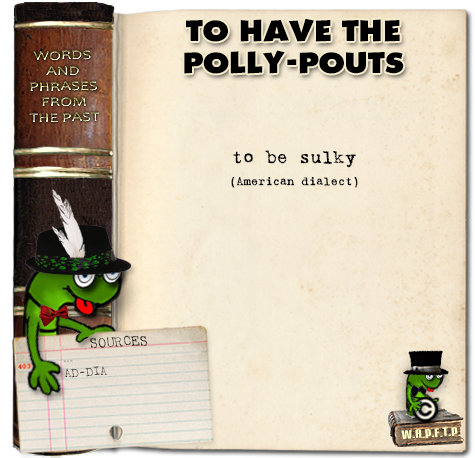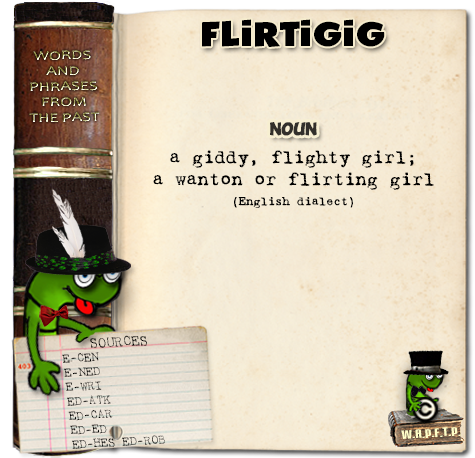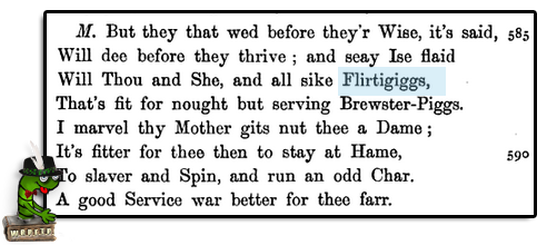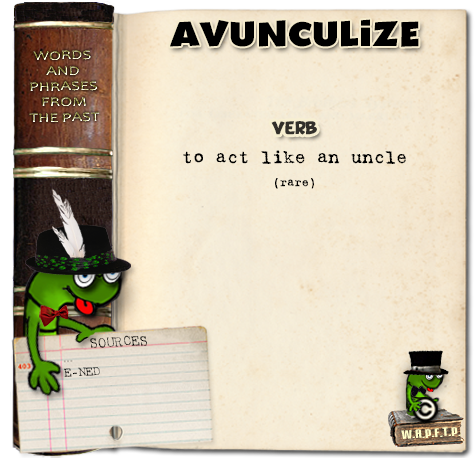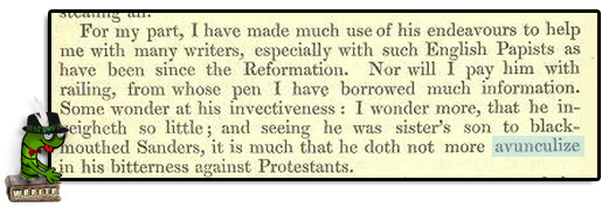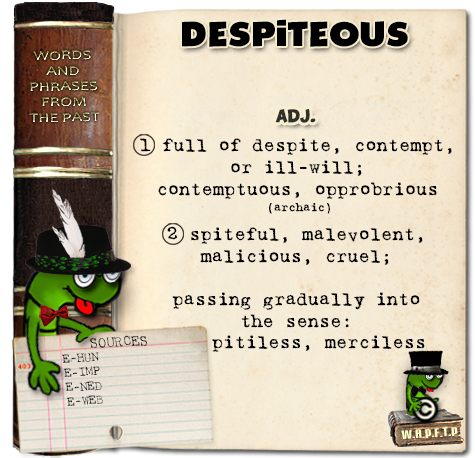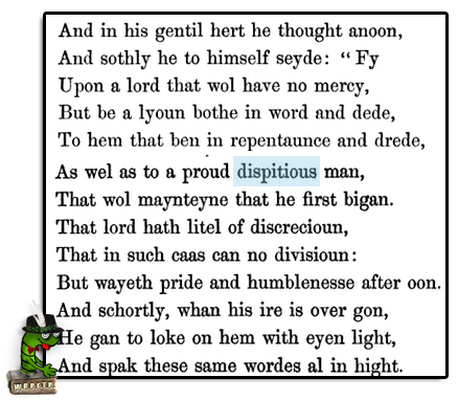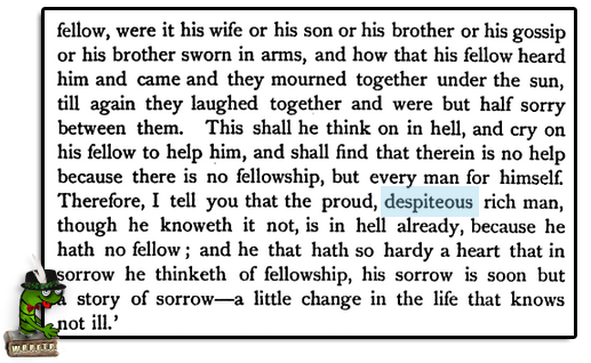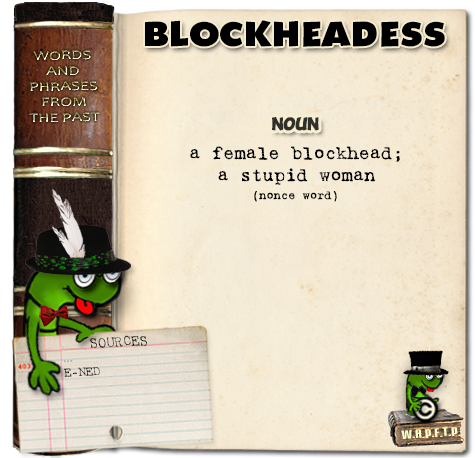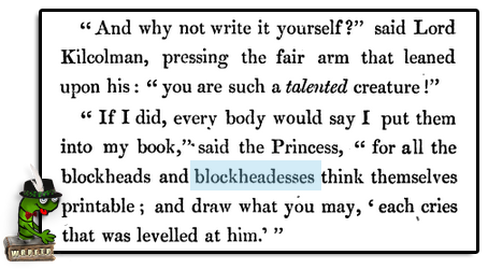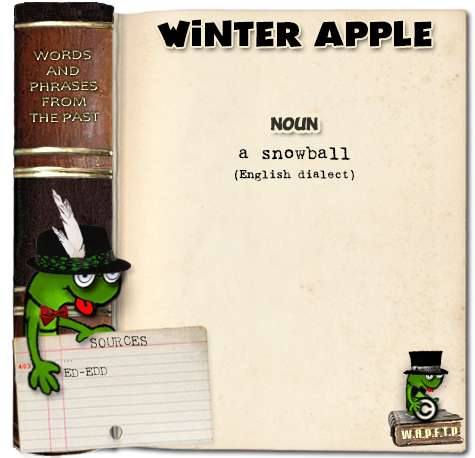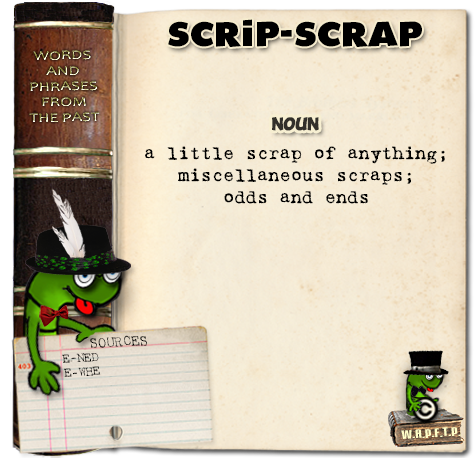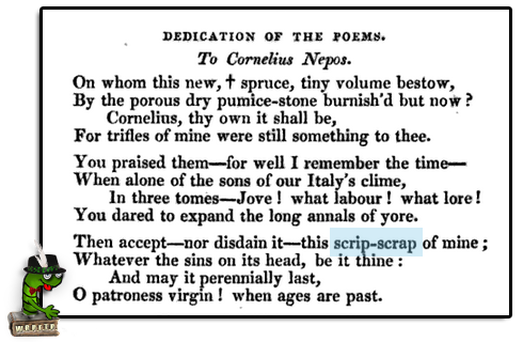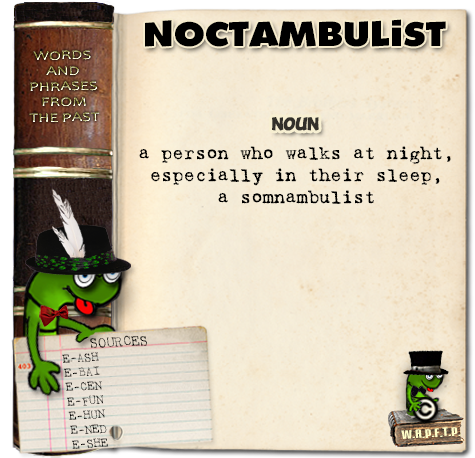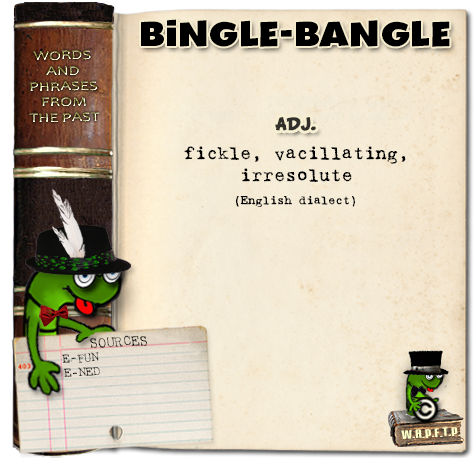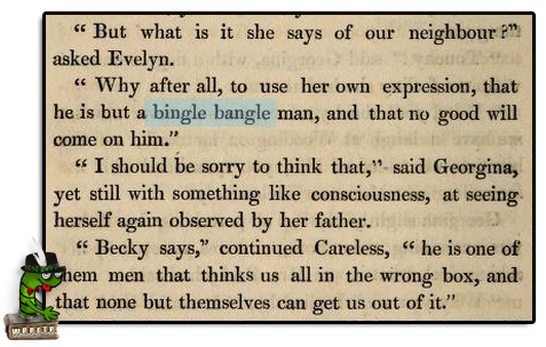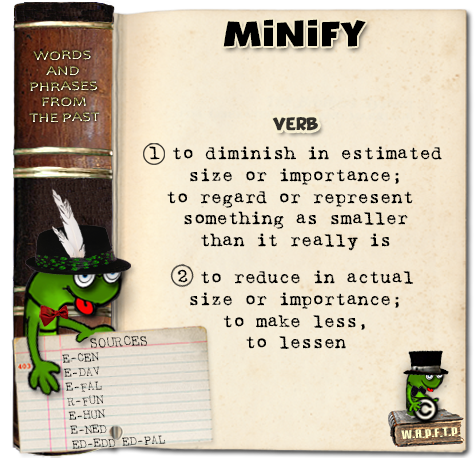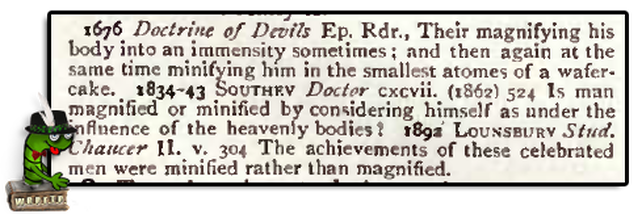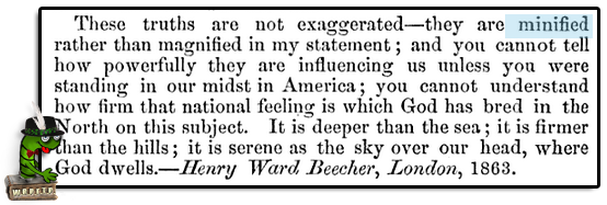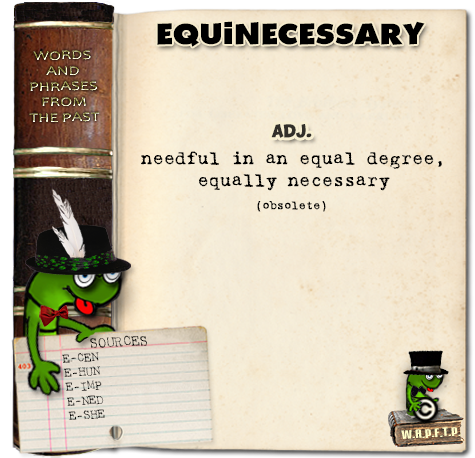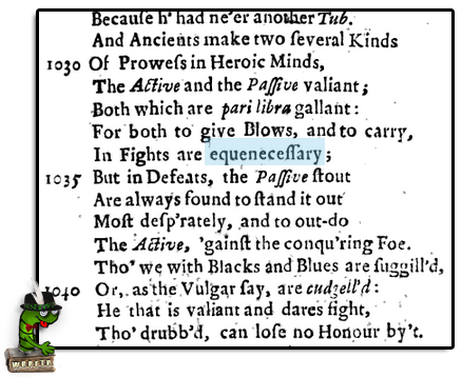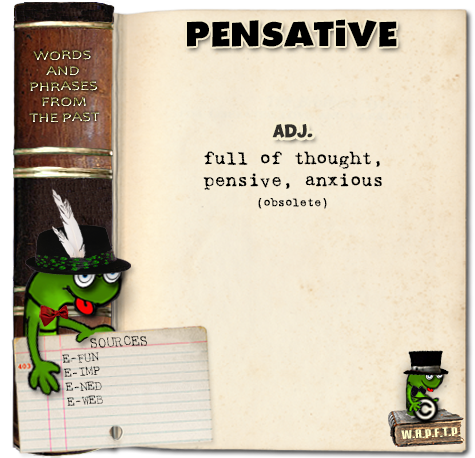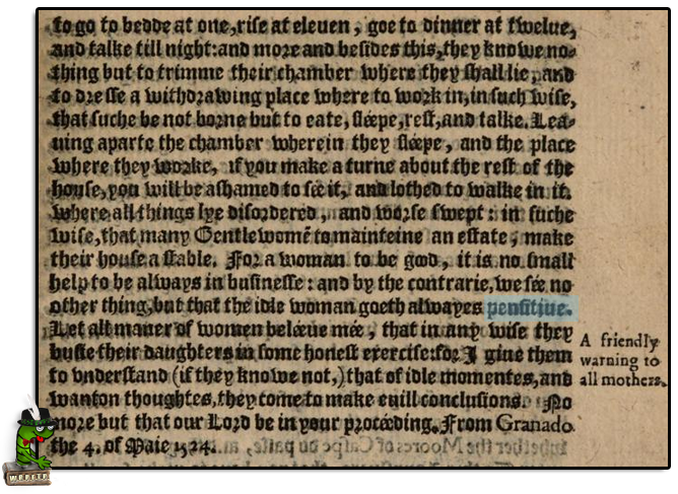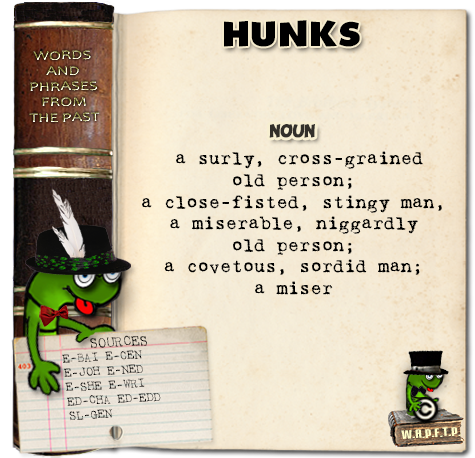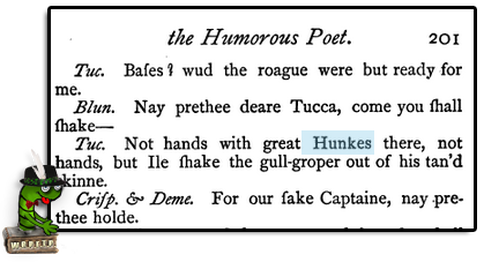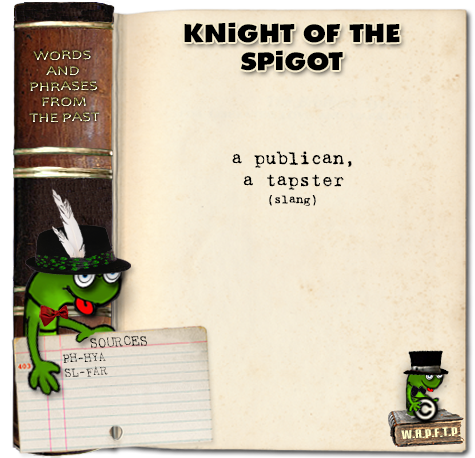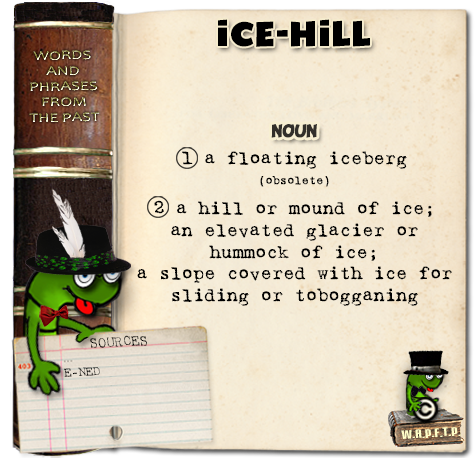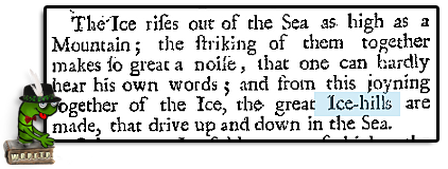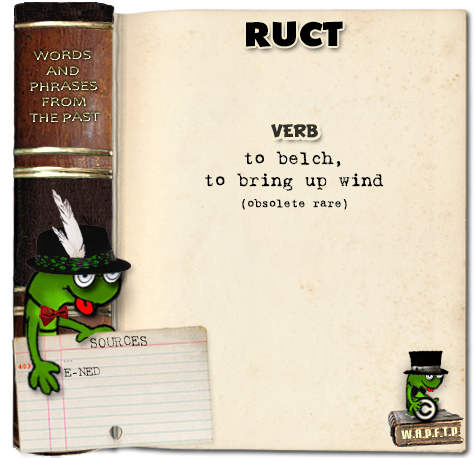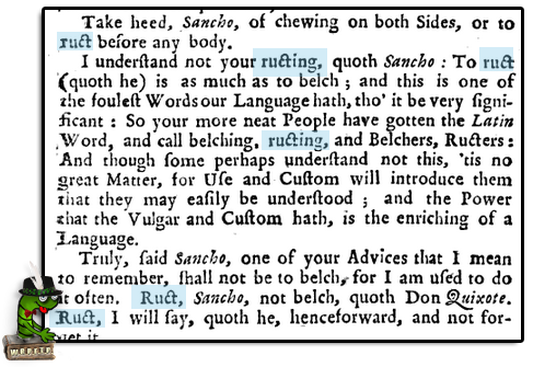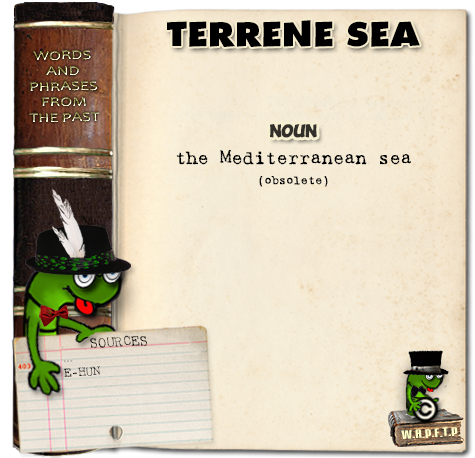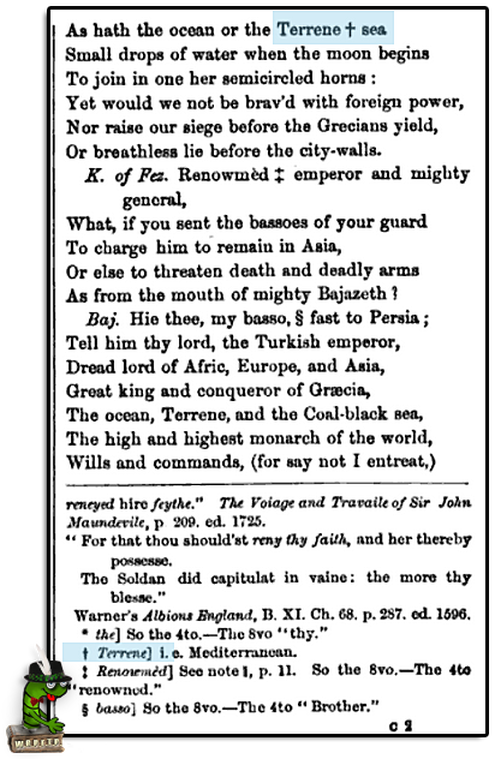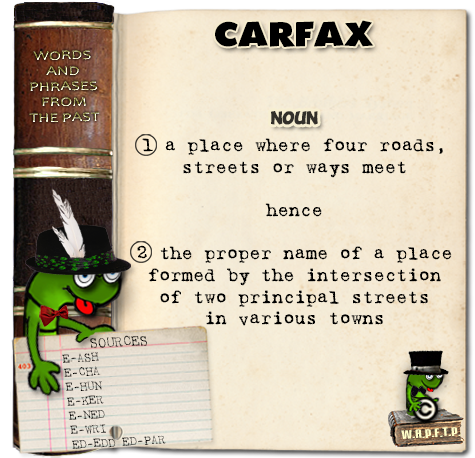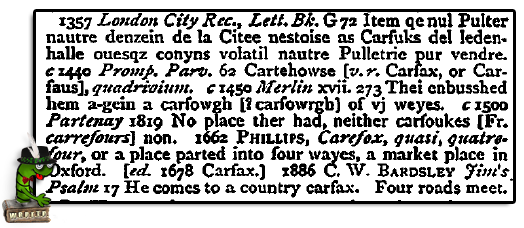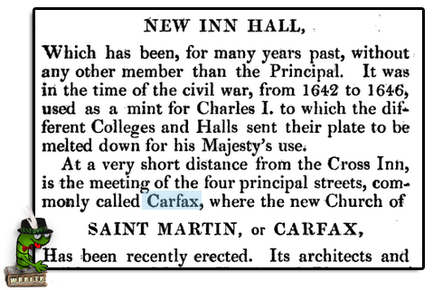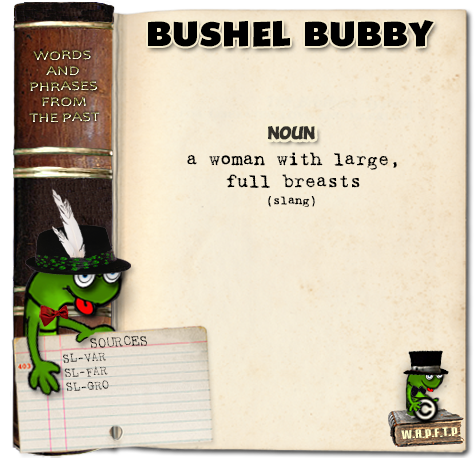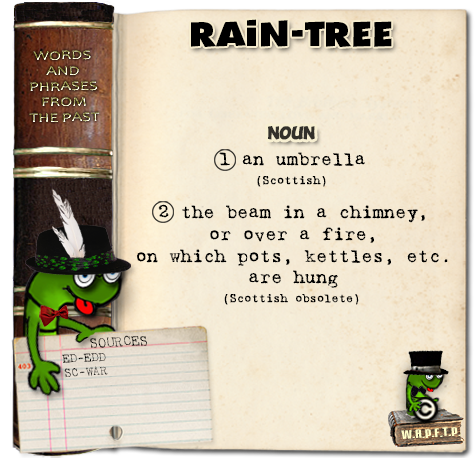|
From: Dialect Notes
Publication of the American Dialect Society Volume IV. 1915 Terms of Disparagement P. 222
0 Comments
from flirt + gig 1683 - A Yorkshire Dialogue; see Example below From: Specimens of English Dialects
Printed 1879 A Yorkshire Dialogue in its Pure Natural Dialect Printed 1684 P. 172 from Latin avunculus maternal uncle + -ize 1662 - The History of the Worthies of England, Thomas Fuller; see Example below From; The History of the Worthies of England
By Thomas Fuller A New Edition. Volume II. 1840 Hampshire P. 22 also despituous, despyteous, dispighteous, dispiteous, dispitious, dispyteous, dispytuous CLICK HERE FOR KEY TO SOURCES late Middle English variant of despitous, from its spelling specially associated with piteous ( pituous), and so giving rise to a differentiated form, dispiteous From: William Morris: Poet, Artist, Socialist
Edited by Francis Watt Lee Second Edition, 1891 A Dream of John Ball Chapter IV. The Voice of John Ball P. 46 from block + head + -ess 1827 - The O'Briens and the O'Flahertys, Lady Morgan; see Example below From: The O'Briens and the O'Flahertys: A National Tale
By Lady Morgan. 1827 Chapter VII P. 361 reduplication of scrap (n.) 1894 - (as per E-NED and the Historical Thesaurus of English). Earlier example (1822) shown below From: The London Magazine
January to June 1822 Volume V. P. 537 from Latin nox, noctis + Latin ambulāre to walk 1731 - An Universal Etymological English Dictionary, Nathan Bailey; "Noctambulist, a Person who walks in the Night, properly in Sleep" From: The Saturday Review of Politics, Literature, Science and Art
Volume XII. 1861 French Literature P. 257 a reduplicate formation from bangle (vb.) 1825 - Tremaine; or The Man of Refinement, Robert P. Ward; see Example below From: Tremaine, or The Man of Refinement
By Robert P. Ward Volume II. 1825 Chapter XXV. Mutual Confidence P. 234 incorrectly from Latin minor less, minimus least, after magnify 1676 - The Doctrine of Devils Proved to be the Grand Apostacy of these Later Times; see below from E-NED From: The Patriotic Speaker:
Consisting of Specimens of Modern Eloquence By Robert R. Raymond, 1864 Our Territory a Trust P. 222 from Latin æqui-, combining form of æquus equal + necessary 1663 - Hudibras, Samuel Butler; see Example below From: Hudibras
By Samuel Butler Amended Edition. 1732 Part I. Canto III P. 121 from Spanish pensativo pensive, full of thought, or of care’ (Minsheu 1599), from pensar to think 1574 - Guevara's Familiar Epistles, Edward Hellowes; see Example below From: The Familiar Epistles of Sir Anthonie of Gueuara
Translated out of the Spanish tongue by Edward Hellowes Imprinted 1577 P. 317 origin unknown; it has the appearance of a quasi proper name of nickname, like Old Grumbles, Bags, Boots, and the like 1602 - Satiro-Mastix or the Untrussing of the Humorous Poet, Thomas Dekker; see Example below From: The Dramatic Works of Thomas Dekker
Volume the First, 1873 The Untrussing of the Humorous Poet P. 201 1821 - Kenilworthy, Sir Walter Scott; see Example below From: Waverley Novels
Volume VI. 1844 Kenilworth Chapter the Eighth P. 71 1694 - Account of Several Late Voyages and Discoveries; see Example below From: An Account of Several Late Voyages & Discoveries to the South and North
By Sir John Narbrough, Abel Janszoon Tasman, John Wood (Captain.), Friedrich Marten Printed 1694 The Second Part of the Voyage to Spitzbergen P. 41 from Spanish ructar, Latin rectāre 1620 - Cervantes Saavedra's History of Don Quixote, Thomas Shelton; see Example below From: The History of the Valorous and Witty Knight-Errant Don Quixote of the Mancha
Written in Spanish by Michael Cervantes Translated into English by Mr. Shelton and Mr. Blunt Printed from the Quarto Edition of 1620 Volume IV. 1733 Book VI. Chapter II. Of the Second Advice that Don Quixote gave Sancho Pansa P. 8 1586 - Tamburlaine the Great, Christopher Marlow; see Example below From: The Works of Christopher Marlowe
Edited by the Rev. Alexander Dyce A New Edition, 1876 The First Part of Tamburlaine the Great Act III Scene I P. 19 also cairfax, carefox, carfoix, carfouk, carfoukes, carfowgh, carfox, carfuks CLICK HERE FOR KEY TO SOURCES from E-NED: Middle English carfuks, -fouk, represent an earlier carreforc(s, -furcs, corresponding to Provencal carreforc, Old French carrefor(s, -four (mod.F. carrefour):-- Latin quadrifurcus four-forked, from quadri- = quatuor four + furca fork; as the French had lost the final 'c' before the 12th century, it is not quite clear how this came into English;—possibly from the Latin form—it could hardly be from the Proven{cced}al; the total absence of the r in English is also notable, esp. as fork was a well-known word from Old English times; but notwithstanding these and other obscure points in the phonetic history, the derivation itself appears to be beyond doubt 1357 - (definition 1) London City Records; see below from E-NED From: The Oxford University and City Guide
A New Edition, 1828 P. 129 from bushel (n.) a large quantity + bubby (n.) a woman's breast 1785 - A Classical Dictionary of the Vulgar Tongue, Francis Grose;
"BUSHEL BUBBY, a full breasted woman" |
Archives
September 2021
|
